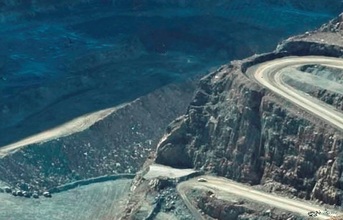
Dr VK Saraswat, Member, NITI Aayog said that there is a need for a well-developed non-ferrous metals industry in India as it provides important raw material to many industries which are the backbone of economic development. "With increasing usage of these metals in several existing as well as emerging applications coupled with new technologies, we can expect a paradigm shift that can change the way non-ferrous metals will be produced and consumed in the future," he added.
Addressing webinar on ‘Indian Non-Ferrous Metals Industry', organized by FICCI, Dr Saraswat said that as the demand in end-use sectors pick up in future, post unlocking, the non-ferrous metals industry will undergo a complete paradigm shift. "Strong domestic demand along with government reforms will maintain the economic growth momentum going forward. A major push is expected to emerge with the help of various reforms by the government which will help the industries like non-ferrous metals," he said.
In order to further boost the sector, Dr Saraswat emphasized on early implementation of the recycling policy. "The much-needed reforms on guidelines or standards for boosting domestic scrap recycling would be addressed by the Metal Recycling Policy, which the government has formulated along with the industry stakeholders," he said.
Dr Saraswat further stated that industry must also invest more on the R&D in order to become globally competitive. "Government's role is to provide policy initiatives and ease of doing business, but industry must come forward with investments in high value products for producing not only for the domestic markets but also for exports," he noted.
Elaborating on the challenges faced by the industry, Dr Saraswat said that the government is working on issues like inverted duty structure, dumping of goods under various FTAs, poor infrastructure, high logistics & power costs and other taxes. He further stated that leveraging the initiatives like Atmanirbhar Bharat, Make in India and Smart Cities, we can expect opportunities in the manufacturing sector including the non-ferrous metals.
Bipin Menon, Additional DGFT, Ministry of Commerce & Industry said that there is a need to adapt to newer technologies which will help the growth of non-ferrous metals sector. "As the existing supply chain gets unshackled in the post COVID scenario, all stakeholders need to re-strategize and be innovative," he added. Speaking on the FTAs, Menon said that the government will take a holistic approach to fine-tune the FTAs in order to align them to Atmanirbhar Bharat program. He highlighted that as an industry and the economy as a whole, we should also try to extract more benefits from such FTAs.
AK Shamsi, Executive Director, Traffic Transportation, Indian Railways (IR) highlighted the various initiatives undertaken to benefit the industry including a reduction in the freight cost and augmentation of the infrastructure. He added that IR is planning to expand the existing freight network on high density routes by 2024. "Indian Railways is all geared up to meet the future demands of the industry," he noted.
Alok Chandra, Economic Advisor, Ministry of Mines, Govt of India said that the government is focusing on providing required policy reforms to further support the Atmanirbhar Bharat program. "We are working on improving the ease of doing business and reducing the compliance burden on the industry," he added.
Dr Ajit Ranade, President & Chief Economist, Aditya Birla Group said that Atmanirbhar Bharat does not mean catering to the domestic demands only, but it also means having capacity and competitiveness to cater to the global demands.
Satish Pai, Chair, FICCI Non-Ferrous Metals Committee and MD, Hindalco Industries Ltd said that we must focus on increasing the domestic production of non-ferrous metals in order to reduce import dependence. This would include correcting the inverted duty structures along with revisiting our existing FTAs, he added.
SK Roongta, Mentor, FICCI Non-Ferrous Metals Committee and Non-executive Chairman, BALCO said that in addition to the challenges faced by the industry, the current pandemic and the resultant lockdown with disruptions in the economy has further increased the trouble for the Indian non-ferrous metals industry. However, moving into the Q3 and Q4 for the current fiscal, he mentioned that with the demand uptick, we expect for the revival of the industry soon.
END



























